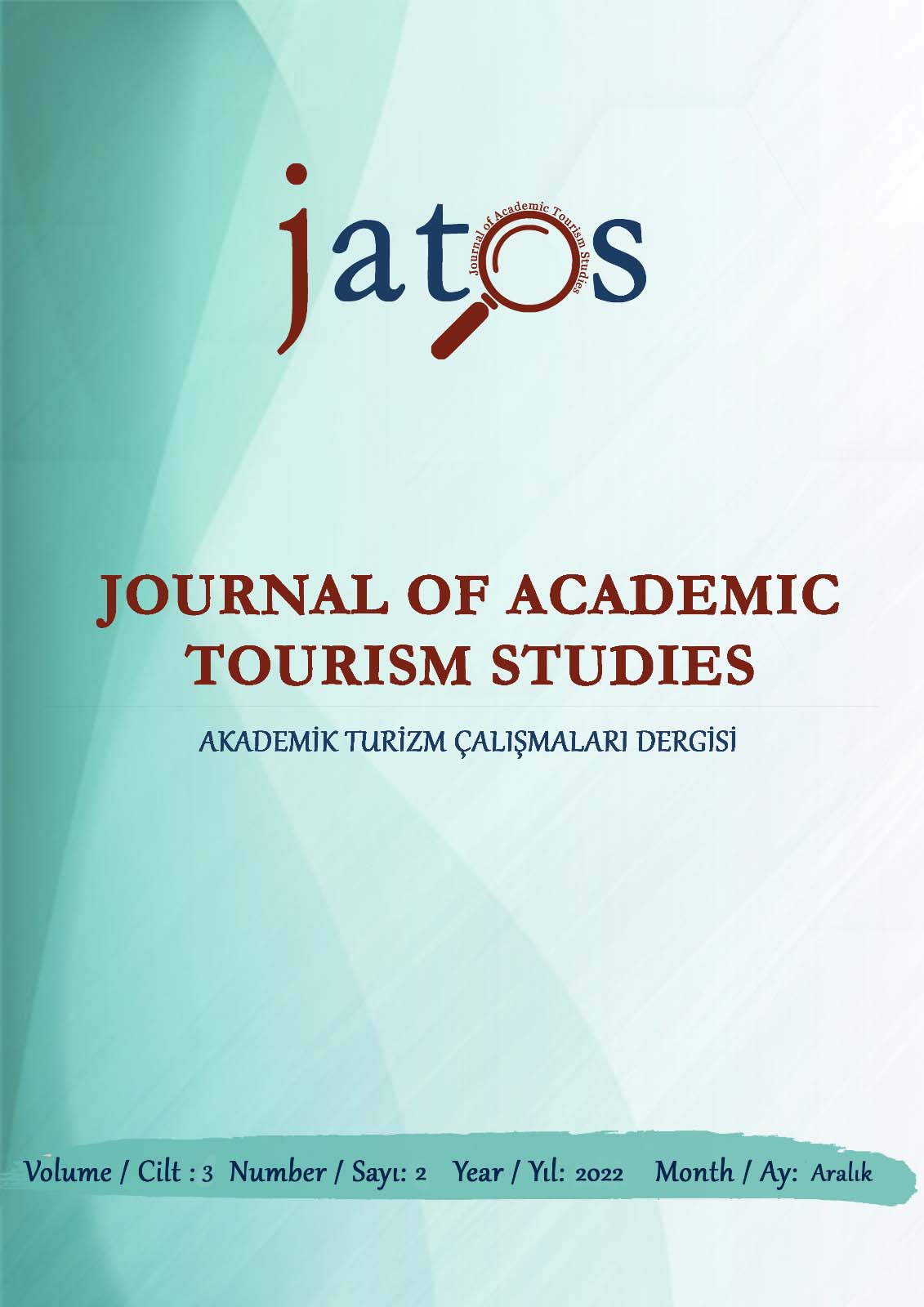Author :
Abstract
Bu çalışmada, tüketicilerin yiyecek-içecek sektöründe çevreciliğe ilişkin tutumu incelenmiştir. Böylece tüketicilerin çevrecilik konusundaki ilgi, bilgi ve farkındalık düzeyleri hakkında çıkarımlarda bulunmak amaçlanmıştır. Araştırmanın nüfusu, Mersin il merkezinde faaliyet gösteren yiyecek-içecek işletmelerinde düzenli olarak yeme-içme alışkanlığına sahip tüketicilerdir. Örneklem grubu kartopu örnekleme yöntemiyle seçilmiştir. Veri toplama aracı olarak yarı-yapılandırılmış görüşme yapılmış ve araştırmaya 30 kişi katılmıştır. Veri analizinde içerik analizi kullanılmıştır. Veri analizi, tüketicilerin tutumları, restoran tercihinde önem verilen noktalar, restoranlarda verilen hizmetlerin çevresel etkileri, çevreci uygulamaların restoranın başarısına sunduğu katkı ve çevresel farkındalık başlıkları altında değerlendirilmiştir. Analiz sonucunda, tüketicilerin çevreciliğe ilişkin tutumlarının genel anlamda olumlu olsa da, bu konuda bir ilgi, bilgi ve farkındalık eksikliği olduğu anlaşılmıştır.
Keywords
Abstract
In this study, consumers' attitudes towards environmentalism in the food & beverage industry were examined. Thus, it is aimed to make inferences about consumers' interest, knowledge, and awareness level of environmentalism. The population of the research is the consumers who have regular eating and drinking habits in the food & beverage businesses operating in Mersin, Türkiye. The sample group was selected by the snowball sampling method. Semi-structured interviews were conducted, and 30 people participated in the research. Content analysis was used in data analysis. The data analysis was evaluated under the headings of consumers' attitudes, the points that are important in restaurant preference, the environmental effects of the services provided in restaurants, the contribution of environmental practices to the success of the restaurant, and environmental awareness. As a result of the analysis, it has been understood that although consumers' attitudes towards environmentalism are generally positive, there is a lack of interest, knowledge, and awareness on this issue.





